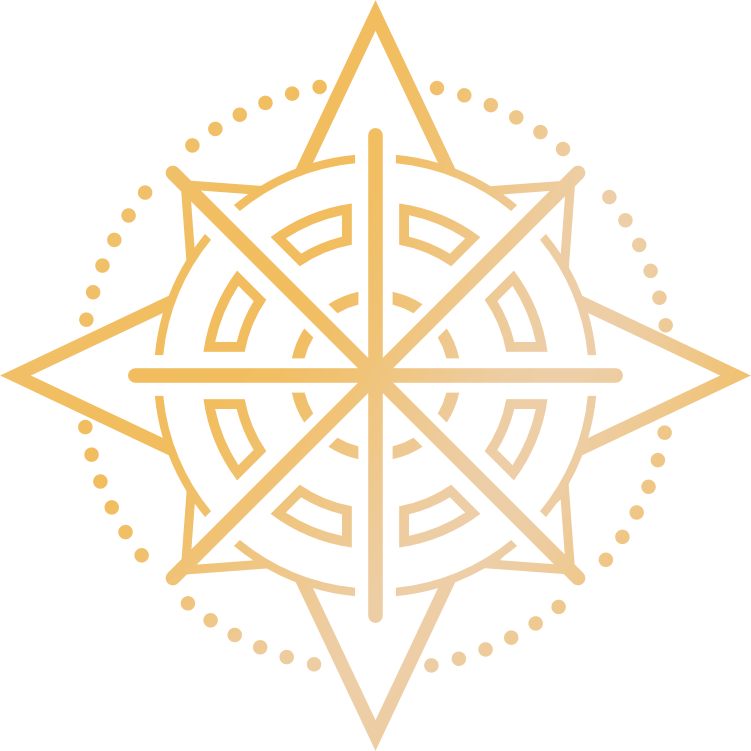Nine of Cups
If you’re exploring the tarot as a tool for personal growth, the Nine of Cups is a card that’s likely to catch your eye. Often called the “wish card,” it’s associated with satisfaction, emotional fulfillment, and gratitude. But its meaning goes deeper than just having your desires granted—it offers rich material for self-reflection and practical change.
Understanding the Nine of Cups: Context and Imagery
The traditional image shows a person sitting comfortably before a row of nine golden cups. There’s a sense of ease, pride, and contentment. The cups behind the figure symbolize emotional resources and accomplishments—achievements that have brought joy or satisfaction. The figure’s posture suggests self-assurance and a moment of pause to appreciate what has been gained.
It’s a card about satisfaction—but also about understanding where that feeling comes from, and how we relate to our own desires and needs.
Core Meanings of the Nine of Cups
- Emotional contentment: Feeling satisfied, grateful, or fulfilled by what you have or have achieved.
- Personal wishes and goals: Getting what you hoped for, or realizing a heartfelt desire.
- Acknowledgment: Taking time to recognize and celebrate your progress and emotional well-being.
- Gratitude and self-acceptance: Appreciating yourself and your journey so far.
Upright Nine of Cups: Meaning and Psychological Interpretation
In its upright position, the Nine of Cups is a strong sign of emotional fulfillment and well-being. It’s often seen as the “wish card” because it suggests that things are coming together in a way that feels right for you.
“The moment you feel grateful is the moment you realize you have enough.”
From a psychological perspective, the upright Nine of Cups invites you to pause, notice your achievements, and practice gratitude. It’s not about perfection or reaching every goal; it’s about recognizing what is already working and allowing yourself to feel good about it.
Practical Applications (Upright)
- Pause for gratitude: Take time each day to list three things you genuinely appreciate about your life or yourself.
- Celebrate small wins: Don’t wait for major milestones. Acknowledge progress, even if it feels minor.
- Mindful satisfaction: Notice moments of contentment. What’s happening? How does your body feel? How can you invite more of these moments?
- Share your joy: Expressing gratitude or satisfaction to others can deepen your connections and reinforce positive emotions.
Reversed Nine of Cups: Meaning and Psychological Interpretation
When the Nine of Cups appears reversed, its energy shifts. Instead of fulfillment, you might notice feelings of dissatisfaction, disappointment, or emotional emptiness—even if, on the surface, things seem “good.”
This reversal asks important questions:
- Are you chasing goals that don’t truly align with your deeper needs?
- Is your satisfaction dependent on external validation or material achievements?
- Are you overlooking the small joys because you’re focused on what’s missing?
“True contentment comes not from having everything, but from appreciating what you have.”
Psychologically, the reversed Nine of Cups is an invitation to look beneath the surface. It encourages honest self-inquiry: Are you trying to fill an inner void with outer achievements? Are you ignoring your real feelings in pursuit of what you “should” want?
Practical Applications (Reversed)
- Reflect on desires: Write about what you think will make you happy. Then ask yourself: Is this truly my desire, or am I chasing someone else’s dream?
- Address emotional gaps: Notice where you feel dissatisfied. What’s underneath? Is there a need for rest, connection, or self-care?
- Release comparison: If you find yourself comparing your life to others, gently bring your attention back to your own journey.
- Redefine success: What does fulfillment mean to you beyond material achievements?
Applying the Nine of Cups in Modern Life
In today’s fast-paced world, it’s easy to overlook moments of satisfaction. We’re often encouraged to strive for more—more success, more possessions, more recognition. The Nine of Cups reminds us that genuine contentment is an inside job.
This card can be a gentle nudge to check in with your emotional well-being. It asks: Are you making time to enjoy what you have? Are you connecting with your own sense of gratitude?
Self-Development Exercises Inspired by the Nine of Cups
- Daily Gratitude Journal: Each evening, jot down three things for which you feel grateful. Over time, notice how this shifts your mood and outlook.
- Celebration Ritual: When you achieve a goal (big or small), create a simple ritual—light a candle, play your favorite song, or share the news with a friend.
- Check-in Meditation: Sit quietly for five minutes. Ask yourself, “Where do I feel contentment in my life right now?” Let the answer arise naturally.
- Values Clarification: Make a list of what truly brings you joy or meaning. Compare this with your current goals—are they aligned?
Using the Nine of Cups in Relationships and Work
In relationships, the Nine of Cups encourages you to express appreciation—to yourself and others. A simple thank you, a smile, or a kind word can strengthen bonds and create moments of shared happiness.
At work, the card can prompt you to celebrate progress, not just results. Recognizing your own efforts and those of your colleagues can foster a more supportive, positive environment.
Concrete Steps for Emotional Satisfaction
- Express gratitude out loud: Let people know when you appreciate them. It builds trust and deepens connections.
- Set “satisfaction check-ins”: Once a week, ask yourself: What went well? What am I proud of? What small joy did I experience?
- Avoid perfectionism: Remind yourself: Satisfaction doesn’t require perfection. It grows from acceptance and presence.
Final Thoughts
The Nine of Cups is a powerful reminder that fulfillment is accessible, even in the midst of challenges. It’s about pausing to recognize your progress, appreciating what you have, and turning inward to ask what truly matters.
Tarot is not fortune-telling — it’s a mirror for reflection and growth.
